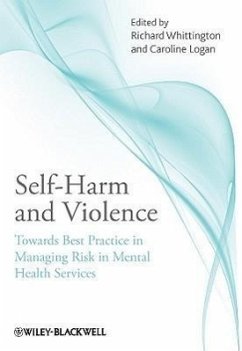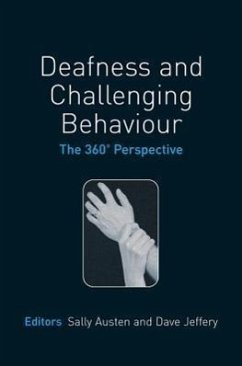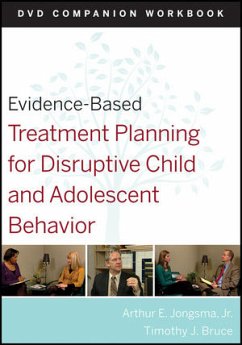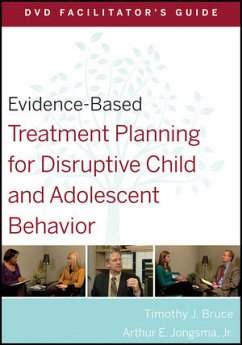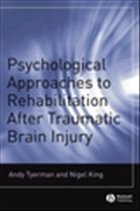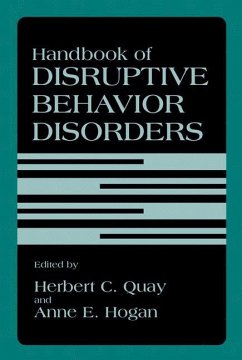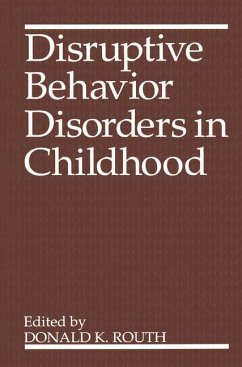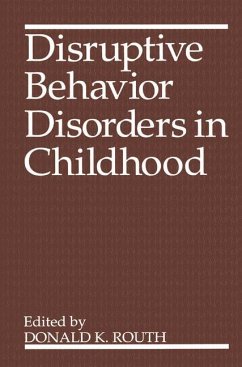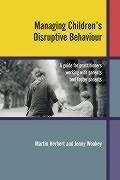
Managing Children's Disruptive Behaviour
A Guide for Practitioners Working with Parents and Foster Parents
Versandkostenfrei!
Versandfertig in über 4 Wochen
64,99 €
inkl. MwSt.

PAYBACK Punkte
32 °P sammeln!
Managing Children's Disruptive Behaviour is a comprehensive guide designed for professionals and parents who care for children whose behaviour problems are beyond those encountered normally. Arranged in three parts, the book opens by setting out the theoretical background to conduct disorders in a range of settings. Part Two discusses issues in assessment and treatment and explains the background to the 'Child-Wise' programmes devised by the authors. Four versions of the Child-Wise programme follow, complete with useful materials for evaluation and homework purposes. This flexible set of resou...
Managing Children's Disruptive Behaviour is a comprehensive guide designed for professionals and parents who care for children whose behaviour problems are beyond those encountered normally. Arranged in three parts, the book opens by setting out the theoretical background to conduct disorders in a range of settings. Part Two discusses issues in assessment and treatment and explains the background to the 'Child-Wise' programmes devised by the authors. Four versions of the Child-Wise programme follow, complete with useful materials for evaluation and homework purposes. This flexible set of resources has been designed for use with children aged between 2 and 10 years and includes versions for use: in group settings; at home; in the classroom; with typical and special needs children. Devised for use by a wide range of professionals, the programmes reduce fraught interactions and restore mutually enjoyable relationships between the carer/parent and the child. There are also further resources available to download from a supporting website Managing Children's Disruptive Behaviour is an invaluab le tool for psychologists, health visitors, social workers, teachers, and all those whose work involves children and their carers.



